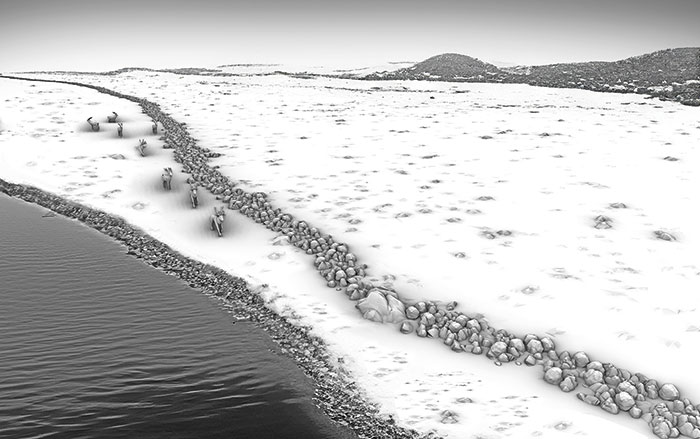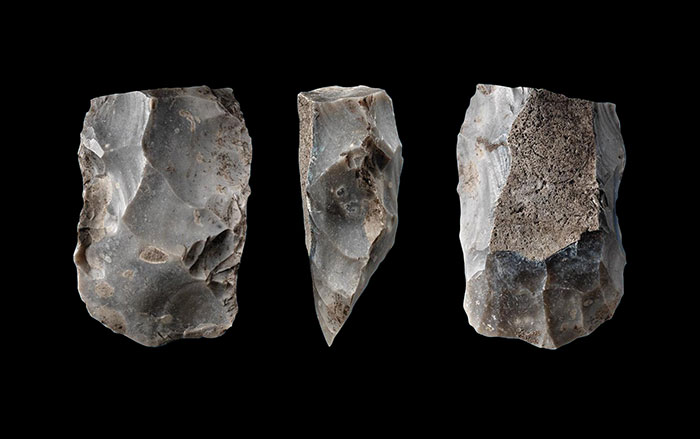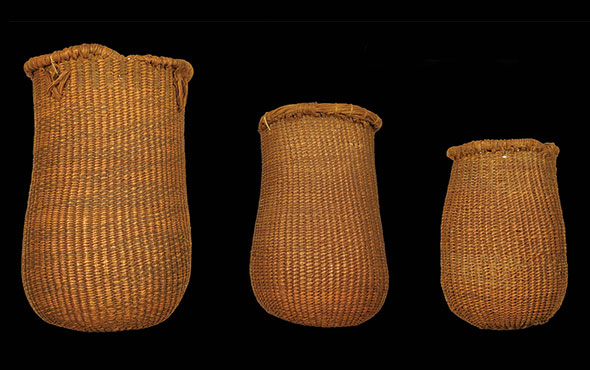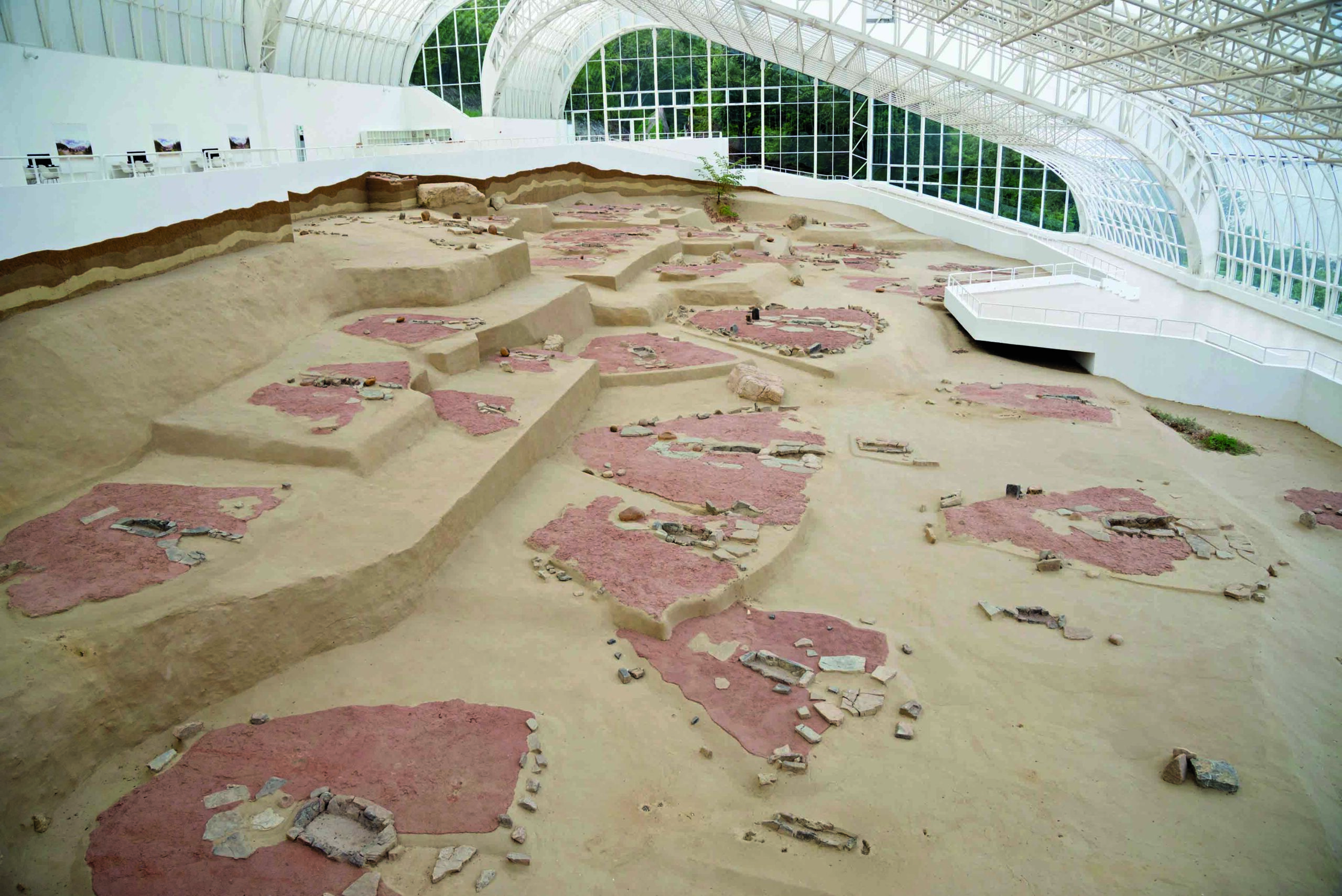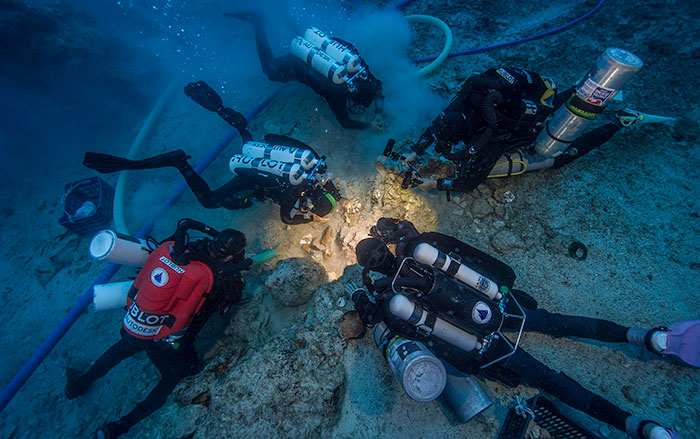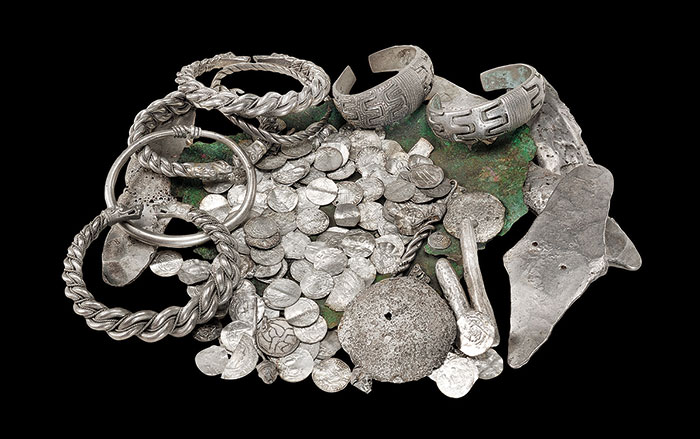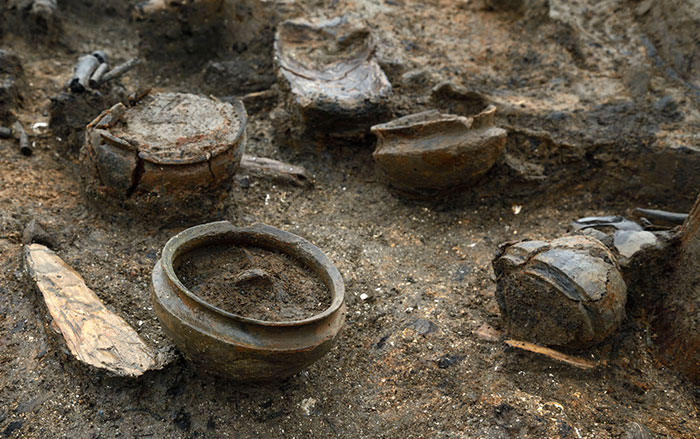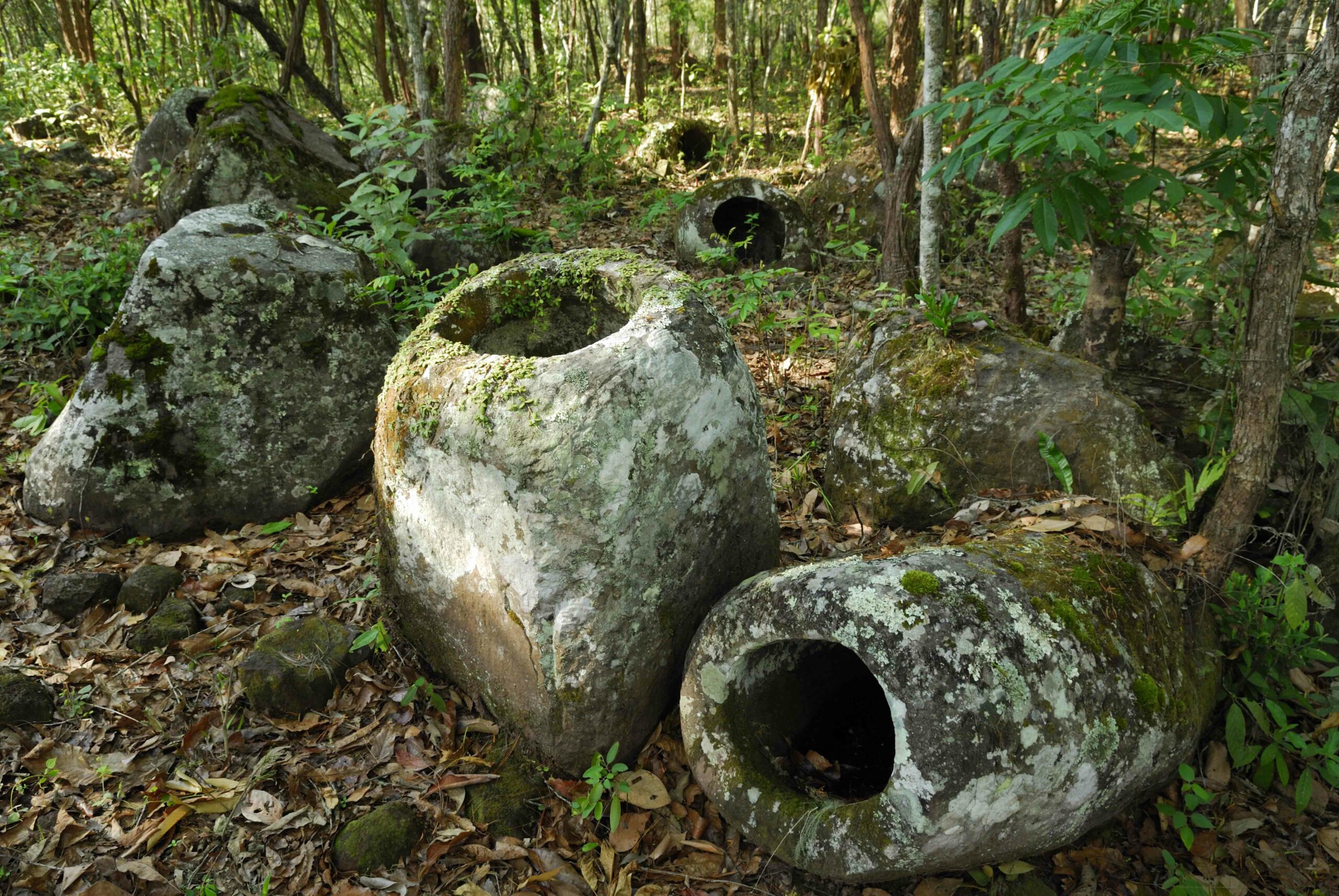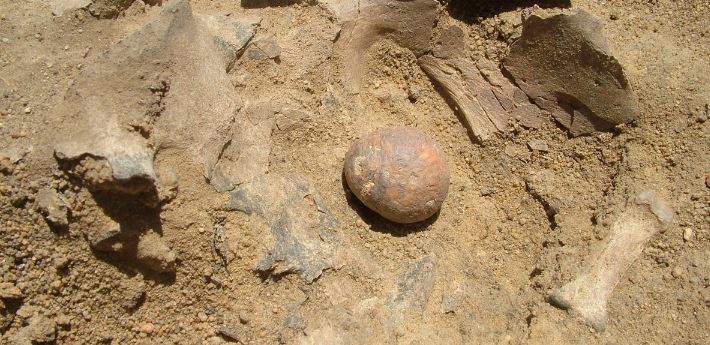
TREVISO, ITALY—Seeker reports that a team led by Donatella Usai and Sandro Salvatori of the Center for Sudanese and Sub-Saharan Studies uncovered the 12,000-year-old remains of a man who suffered from prostate stones. The skeleton was found in the cemetery of Al Khiday, which is located on the banks of the White Nile in central Sudan. The stones, which are about the size of walnuts, were found in the skeleton’s pelvic area and close to the lumbar vertebrae, and presumably caused extreme pain and made it difficult to urinate. The mineral composition of the stones and relatively low density established that they were not rocks, explained Lara Maritan of Padova University. Further examination with a scanning electron microscope revealed a form of calcium phosphate in the stones that indicates they were indeed produced by the prostate gland. Imprints of bacteria in the stones suggest that the man also suffered from an infection. For more on archaeology in Sudan, go to “The Cult of Amun.”


